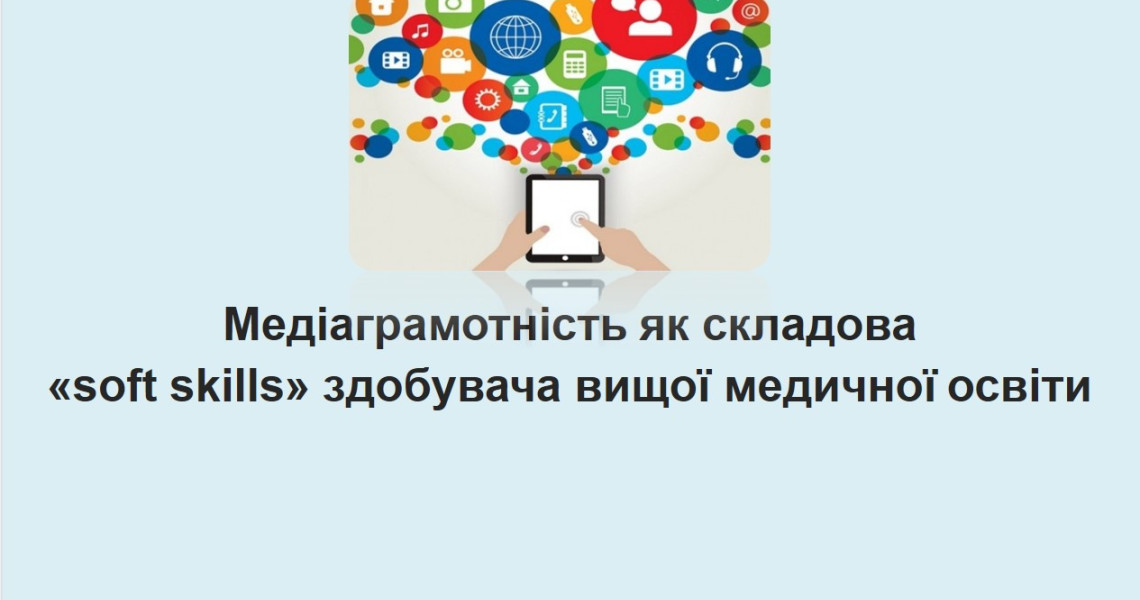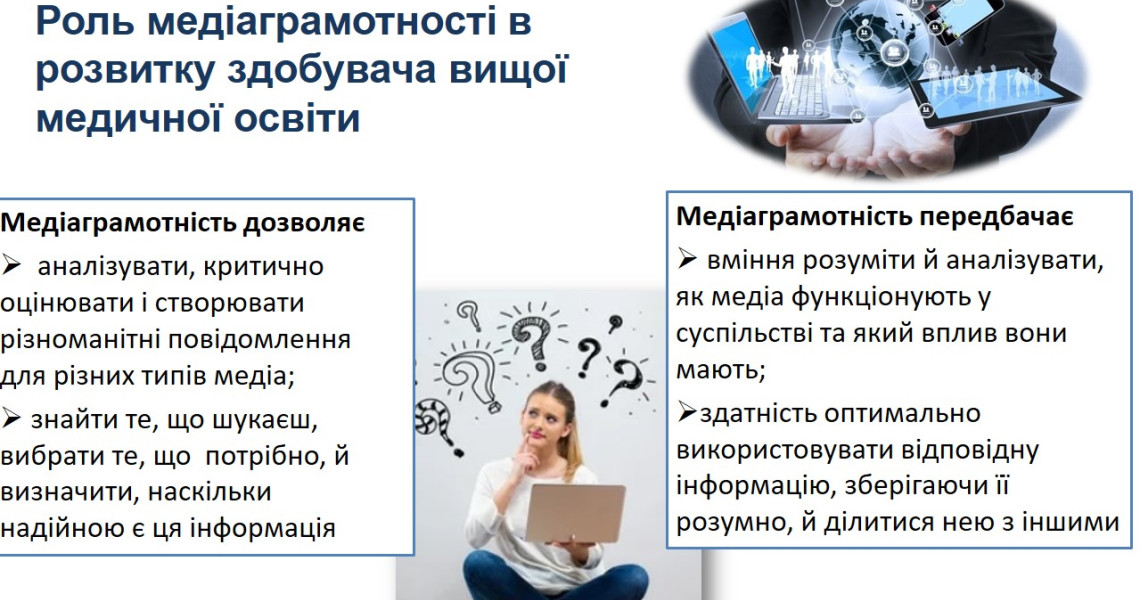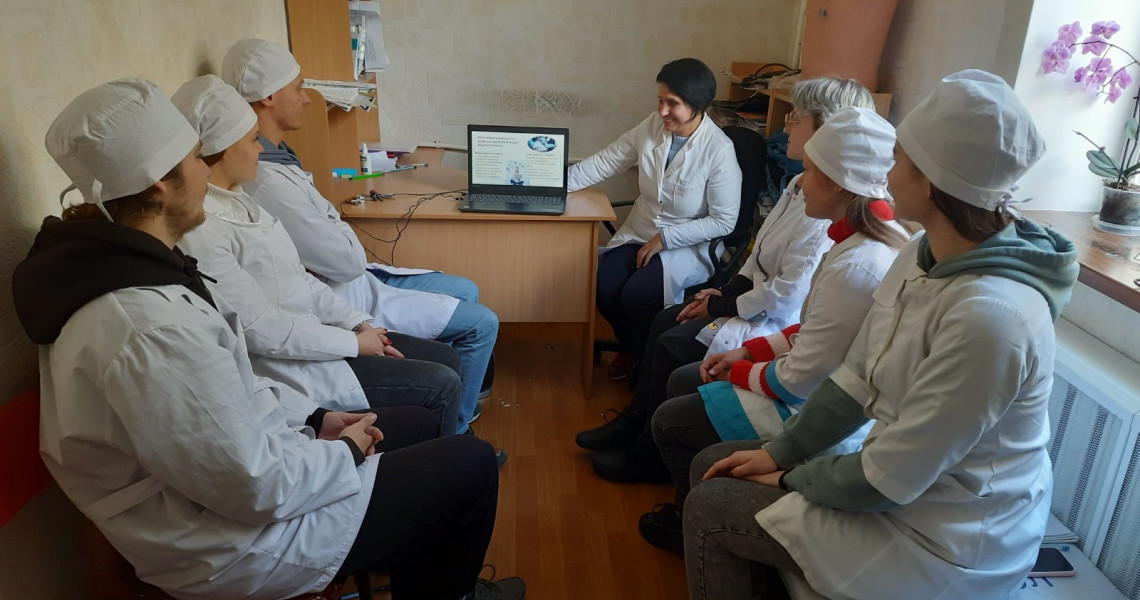Кафедрою пропедевтики внутрішньої медицини проведено виховну бесіду зі здобувачами першого (бакалаврського) рівня вищої освіти ІVкурсу 41 групи ОПП « Медсестринство» на тему: «Медіаграмотність як складова «soft skills» здобувача вищої медичної освіти».
«М’які» навички (soft skills), або особистісні навички, важче виміряти, але вони не менш важливі за технічні навички, зокрема, під час опитування пацієнта та для досягнення комплаєнсу між пацієнтом і лікарем або медичною сестрою. Особливо гостро це стосується педіатрії, де між пацієнтом та лікарем завжди знаходиться одна або дві додаткові ланки: батьки та бабусі. Тож, позитивний результат лікування переважно залежить від комунікативних навичок медичного працівника. До «soft skills» належить і медіаграмотність. Ця компетенція дозволяє аналізувати, критично оцінювати і створювати різноманітні повідомлення для різних типів медіа; знайти те, що шукаєш, обрати те, що потрібно, й визначити, наскільки надійною є ця інформація; розуміти й аналізувати, як медіа функціонують у суспільстві та який вплив вони мають.
Після завершення лекції, серед здобувачів освіти було проведене опитування, що визначало їх рівень оволодіння навичками медіаграмотності, а саме: вміння перевіряти джерело інформації, включно з медичною, вміння аналізувати медіаконтент та поширювати лише достовірну інформацію. Здобувачі освіти мали змогу висловити свої пропозиції щодо поглиблення знань у цій галузі.
Media Literacy as a Component of Soft Skills for Medical Higher Education Students
The Department of Propaedeutics of Internal Medicine held an educational discussion with the first-year (bachelor's level) higher education students of Group 41 on the EPP “Nursing" on the topic: "Media Literacy as a Component of Soft Skills for Medical Higher Education Students."
"Soft" skills, or personal skills, are harder to measure, but they are no less important than technical skills, especially during patient interviews and for achieving compliance between the patient and a physician or nurse. This is particularly important in pediatrics, where there are always one or two additional links between the patient/physician communication: parents and grandparents. Therefore, the positive outcome of treatment largely depends on the communication skills of the medical professional. Media literacy always belongs to "soft skills." This competency allows one to analyze, critically evaluate and create various messages for different types of media; find what you're looking for, choose what you need, and determine how reliable this information is; understand and analyze how the media functions in society and what impact they have.
After the lecture, an assessment was conducted among the students to determine their level of proficiency in media literacy skills, specifically: the ability to verify the source of information, including medical information, the ability to analyze media content, and to only disseminate reliable information. The students had the opportunity to express their suggestions for deepening knowledge in this field.








